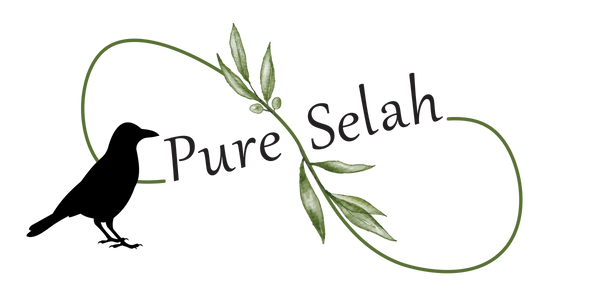
Trusting Your Inner Compass
Aelisa DieckmannShare
Trusting Your Inner Compass
We all know that feeling: the moment when your inner voice speaks clearly, pointing you in a certain direction—only for a storm of doubts to rush in. “What if this goes wrong?” “But what about that?” Suddenly, every possibility of failure takes over.
If you’ve experienced this, congratulations—you’re human.
Being human means having an analytical mind. It’s a survival tool, helping us assess risks and avoid danger. If you’re about to cross a flooded road, your analytical mind will warn you of the risks—that’s a good thing. But sometimes, this same protective mechanism can also silence an incredible gift: your intuition.
Your second-guessing can feel like an endless game of mental ping-pong, where every decision turns into a battle between instinct and doubt. It’s exhausting. In fact, many of us underestimate how much mental fatigue comes from the inability to turn off this constant inner dialogue.
Like many, my own struggle with self-doubt started early, shaped by experiences where mistakes were met with harsh criticism rather than treated as learning opportunities. Maybe you’ve learned to play it safe because the fear of scrutiny feels too overwhelming. Over time, these experiences build deep-seated patterns, causing us to question every move we make. Instead of flying through life, we end up walking—at best.
The Cost of Second-Guessing
When we consistently override our intuition, we pay a price. Every time we dismiss our inner knowing, we reinforce the belief that we can’t be trusted. This creates a self-fulfilling cycle: the more we doubt ourselves, the harder it becomes to listen to that inner guidance.
But here’s a truth worth considering: your gut instinct isn’t just a random feeling. It’s the sum of every lesson you’ve ever learned, the wisdom of those who came before you, and the voice of your higher self. When your intuition speaks, it’s drawing from a deep well of knowledge—one that your conscious mind can’t always access in the moment.
It’s a true gift, and it’s your birthright.
Helping Children Trust Their Own Wisdom
I have little kids. They often ask me for advice, and one of my favorite things to do is turn the question back to them:
"What do you think?"
A lot of times, they’ll say, “I don’t know.” But then I ask them, “Well, what if you did know? Then what would you say?”
Without inserting my opinion, I’m showing them that they already have a wealth of knowledge inside. They don’t always need someone else to tell them the answer—because deep down, they already know. When they tap into that place of self-trust, creativity reignites, solutions appear, and problems lose their grip.
Just like them, you have that inner knowing too. The key is learning how to trust it.
How to Strengthen Your Intuition
Trusting yourself isn’t an overnight process, but it’s a muscle you can build. Here are some simple ways to start:
1. Document Your Intuitive Hits
Keep a journal of moments when your gut feeling was right. Looking back at these moments will help you build confidence in your intuition. Practice, practice, practice.
2. Create a Pause Before Doubt Creeps In
When second-guessing starts to creep in, take a deep breath and pause. Remind yourself of all the times in the past when things worked out just fine. 99% of the time, the thoughts in your head are scarier than the actual action.
3. Reframe the Role of Mistakes
Even when things don’t go as planned, that doesn’t mean you’ve failed—it means you’ve learned.
Try this: At the end of each day, make it a game to call out and celebrate your mistakes. Play with your partner, kids, or friends. Ask, “Who made the biggest mistake today?” Instead of fearing mistakes, reframe them as stepping stones to growth.
Mistakes don’t make you less wise—they make your intuition sharper.
Progress Over Perfection
This journey isn’t about perfection—it’s about progress. Start small, with low-stakes decisions, and gradually build trust in your instincts. Notice how your body feels when you honor your intuition versus when you ignore it.
Respect Your Inner Voice
Your inner voice has been refined by every experience you've ever had. It deserves at least as much respect as the doubts that try to silence it. The next time you feel that inner knowing, don’t push it away. Sit with it. Give it space to speak. Listen. Thank it.
Your Deepest Self Is Guiding You
Your intuition isn’t just another voice in the crowd—it’s your truest self, guiding you with love.
Trust isn’t built overnight, but every time you choose to honor your inner wisdom, you strengthen it.
You grow—and so does your best friend, your inner wisdom.
